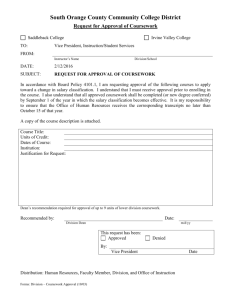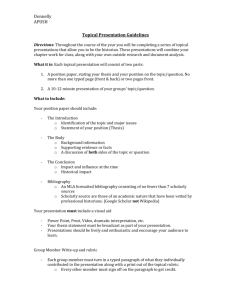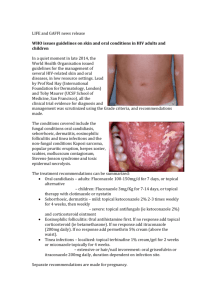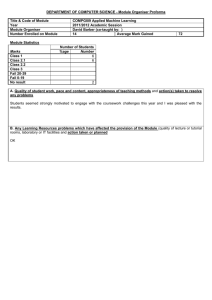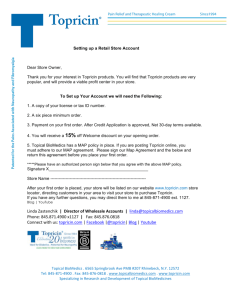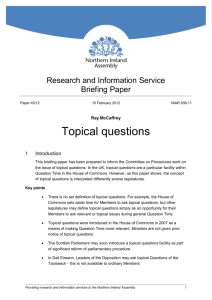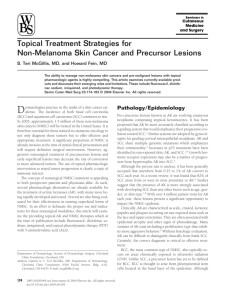Introducing coursework
advertisement
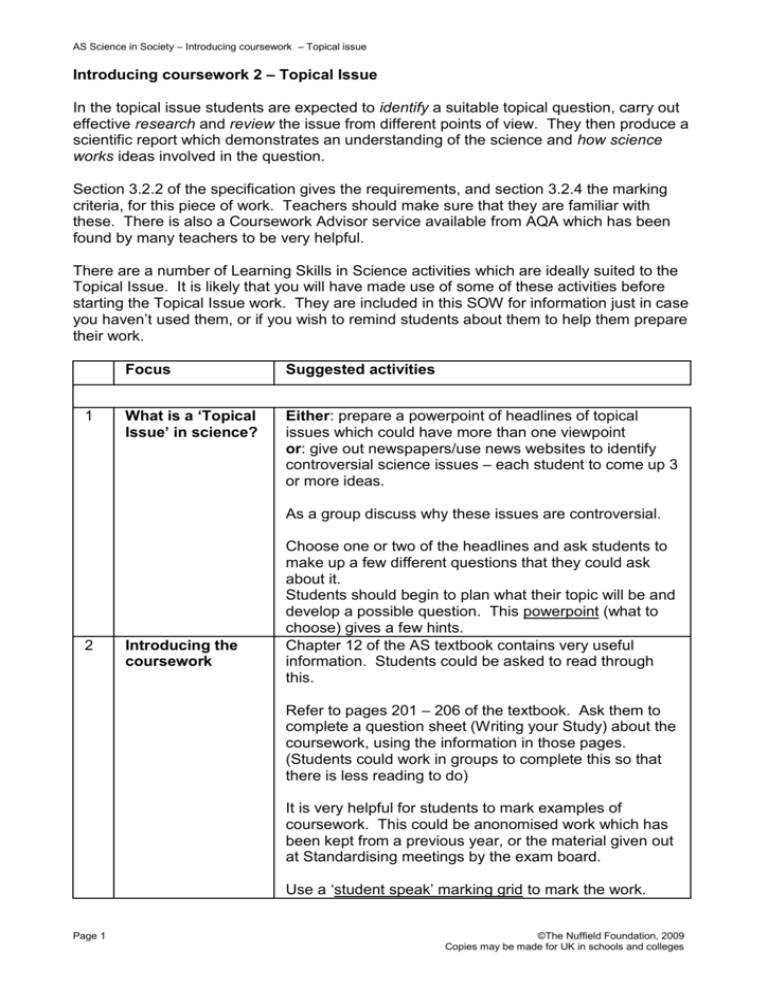
AS Science in Society – Introducing coursework – Topical issue Introducing coursework 2 – Topical Issue In the topical issue students are expected to identify a suitable topical question, carry out effective research and review the issue from different points of view. They then produce a scientific report which demonstrates an understanding of the science and how science works ideas involved in the question. Section 3.2.2 of the specification gives the requirements, and section 3.2.4 the marking criteria, for this piece of work. Teachers should make sure that they are familiar with these. There is also a Coursework Advisor service available from AQA which has been found by many teachers to be very helpful. There are a number of Learning Skills in Science activities which are ideally suited to the Topical Issue. It is likely that you will have made use of some of these activities before starting the Topical Issue work. They are included in this SOW for information just in case you haven’t used them, or if you wish to remind students about them to help them prepare their work. 1 Focus Suggested activities What is a ‘Topical Issue’ in science? Either: prepare a powerpoint of headlines of topical issues which could have more than one viewpoint or: give out newspapers/use news websites to identify controversial science issues – each student to come up 3 or more ideas. As a group discuss why these issues are controversial. 2 Introducing the coursework Choose one or two of the headlines and ask students to make up a few different questions that they could ask about it. Students should begin to plan what their topic will be and develop a possible question. This powerpoint (what to choose) gives a few hints. Chapter 12 of the AS textbook contains very useful information. Students could be asked to read through this. Refer to pages 201 – 206 of the textbook. Ask them to complete a question sheet (Writing your Study) about the coursework, using the information in those pages. (Students could work in groups to complete this so that there is less reading to do) It is very helpful for students to mark examples of coursework. This could be anonomised work which has been kept from a previous year, or the material given out at Standardising meetings by the exam board. Use a ‘student speak’ marking grid to mark the work. Page 1 ©The Nuffield Foundation, 2009 Copies may be made for UK in schools and colleges AS Science in Society – Introducing coursework – Topical issue 3 Collecting information (mainly in students own time) 4 5 Plagiarism Writing the report Discuss with students useful sources of information for their study. The weblinks have some possible starting points. LSS activities: 1.1 The information revolution (link with visit to library or resource centre) 1.1 Using the internet to find information 1.2 Extracting key information from a scientific article at ‘first glance’ 1.2 Delving deeper into an article at ‘second glance’ 1.3 Skim reading a series of articles Once students have begun to collect information, it is worth reminding them about plagiarism and how seriously it is treated, and how to summarise without copying. LSS activity 1.5 Copycat Remind students about the structure of the report – textbook pg 201, specification §3.2.2 LSS activities 1.5 Compiling a bibliography 1.5 Writing a scientific review article 1.5 Writing an abstract As a self assessment exercise the students could use the ‘student speak’ version of the marking grid to assess their own report. Page 2 ©The Nuffield Foundation, 2009 Copies may be made for UK in schools and colleges

